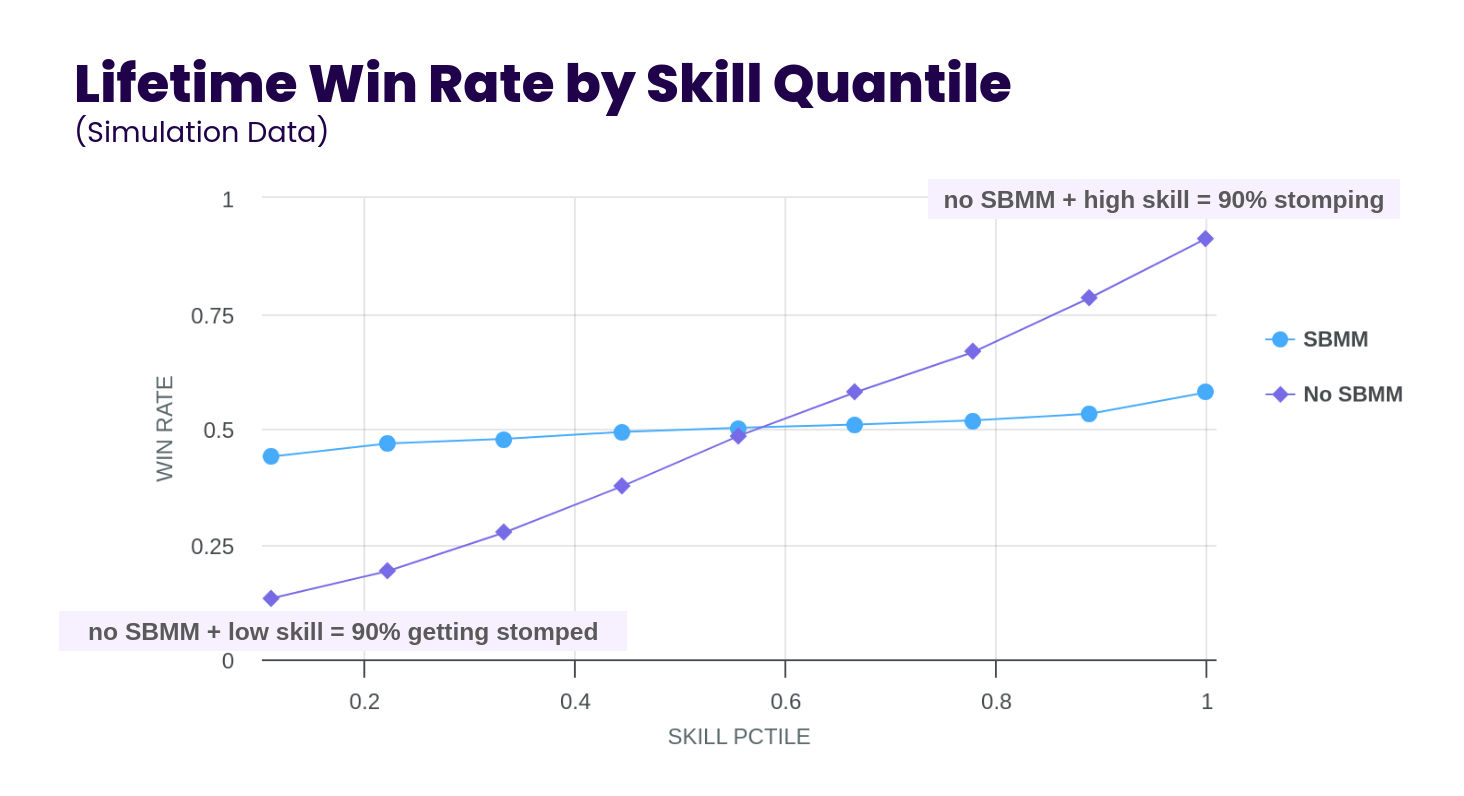SBMM: Skill-Based Matchmaking
Definition
Skill-Based Matchmaking (SBMM) is the process of matching together players of similar skill.
Why do games use SBMM?
In short, SBMM increases engagement and retention. This effect has been observed consistently in experiments by game developers1 2 3 and in academic studies4.
The absence of SBMM leads to repetitive outcomes for players. High-skill players will dominate most of their matches, but low-skill players will consistently struggle. Matchmaking without SBMM leads to a greater variety of skills within each match, but less variety of individual outcomes.

For the vast majority (>80%) of players, the increased outcome variance with SBMM lets them experience more frequent highs, but with the trade-off of relatively more frequent lows for highly-skilled players.
Problems with SBMM
Reduced sense of mastery
The main problem with SBMM is that it reduces extrinsic feedback. As players increase in skill, they're matched with opponents of equal skill, which makes it harder to gauge absolute skill and personal improvement. Solving this requires deliberate transparency around MMR.
Lack of variety → Burnout
Tight SBMM can lead to always facing the same types of opponents, and to punishing players for trying off-META5 strategies.
If the MMR system does not adapt appropriately (or if there is no SBMM at all), players will be discouraged from experimentation or from simply enjoying the game. It's necessary to tune the tightness of matchmaking against the responsiveness of the MMR system to mitigate this.
Invokation can help you quantify the trade-offs and balance the two.